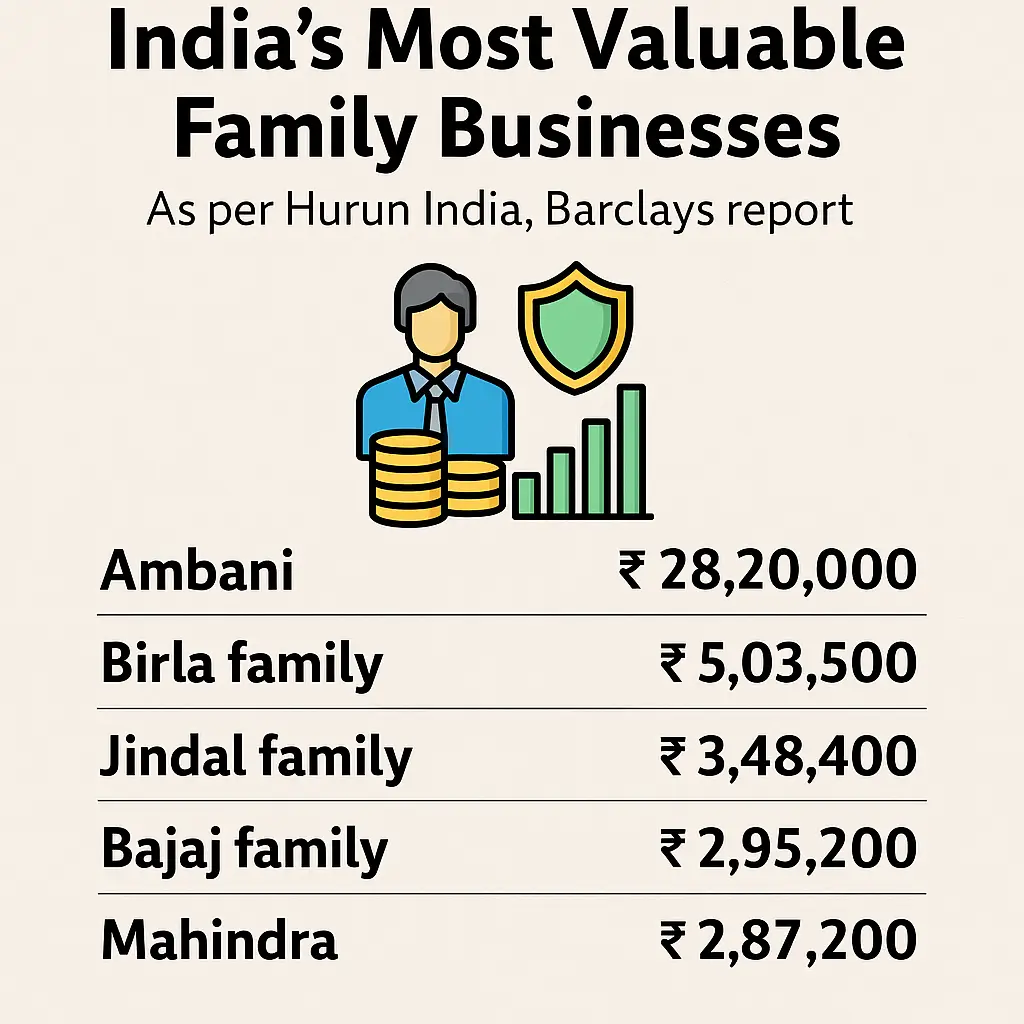For the second year in a row, the Ambani family has retained its crown as India’s most valuable family business, as per the latest Hurun India & Barclays report. With a staggering valuation of ₹28.2 lakh crore, their family enterprise has grown by 10% over last year — a testament to the group’s diversified strength across energy, telecom, retail, and digital ventures.
They are followed by Birla, Jindal, Bajaj, and Mahindra families — names synonymous with India’s industrial and entrepreneurial history. Interestingly, Anil Agarwal & family made one of the biggest leaps this year, climbing six spots to break into the top 10 for the first time.
📊 Key Highlights from the Report:
Top 300 family businesses collectively paid ₹1.8 lakh crore in taxes in 2024.
They employ over 2 million people nationwide.
Contribute nearly 15% of India’s corporate tax collections.
This isn’t just about personal wealth — it’s about national impact. As Nitin Singh, Head of Barclays Private Bank (Asia Pacific), rightly said:
“Beyond wealth creation, these families are building industries, creating jobs, and contributing significantly to India’s economic growth.”
Why This Matters for India’s Economy
Cultural & Social Impact: From CSR initiatives to philanthropy, these families invest heavily in social causes.
Job Creation: Employing millions directly and indirectly across sectors.
Global Competitiveness: Many of these businesses are now global brands, strengthening India’s presence worldwide.
Emerging Trends Among India’s Family Businesses
Diversification: Families like the Ambanis are no longer tied to one industry — energy, telecom, retail, and even green hydrogen are on their radar.
Succession Planning: A shift towards professional management with clear succession strategies, ensuring continuity.
Tech & Sustainability Focus: Adopting cutting-edge technology and committing to ESG goals to stay future-ready.
My Take:
The success of India’s family businesses isn’t just about massive valuations — it’s about the ecosystems they create. They nurture entrepreneurship, supply chain growth, innovation, and skill development. And in doing so, they shape the economic and social fabric of the country.
However, with great influence comes great responsibility. Going forward, family businesses must continue to embrace transparency, governance, and sustainability to remain competitive in a globalized economy.
As India aims for a $5 trillion GDP and beyond, these family-run enterprises will continue to play a pivotal role — not just as wealth creators, but as nation builders.
💬 Question for you: Which Indian family business do you think will break into the top 10 next year?
hashtagFamilyBusiness hashtagIndiaGrowthStory hashtagWealthCreation hashtagAmbani hashtagBusinessLeadership hashtagEconomicGrowth hashtagHurunIndia hashtagBarclays

